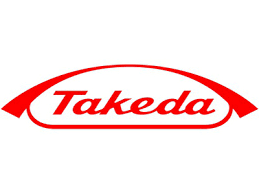The approval follows the positive recommendation from the European Medicines Agency’s Committee for Medicinal Products for Human Use (CHMP) in October 2022

Takeda has announced that the European Commission (EC) granted marketing authorization for the company’s dengue vaccine QDENGA for the prevention of dengue disease in individuals from four years of age in the European Union (EU).
QDENGA should be used in accordance with official recommendations. The approval follows the positive recommendation from the European Medicines Agency’s Committee for Medicinal Products for Human Use (CHMP) in October 2022.
“With the increasing ease of travel today, our once expansive world has become that much smaller, increasing the risk of dengue disease for those living in dengue-endemic areas and for those traveling to these regions,” said Gary Dubin, President of the Global Vaccine Business Unit, Takeda.
“The European Commission's approval marks an important turning point for QDENGA as we are one step closer to achieving our aspiration to help reduce the global burden of dengue. We are proud to introduce QDENGA in many parts of the EU, offering healthcare providers a new tool in dengue prevention for their patients living in the EU and traveling to endemic regions around the world,” added Dubin.
“Effective dengue prevention requires a multi-faceted approach, and previous methods have been insufficient for a number of reasons. With the potential for dengue to cause local outbreaks as demonstrated in several European countries over recent years, and the threat for European travelers visiting dengue-endemic countries, gaps exist that may put some people at risk,” said Dr. Tomas Jelinek, Medical Director of the Berlin Centre for Travel and Tropical Medicine and Scientific Director of the CRM Centrum für Reisemedizin Dusseldorf.
Approval from the EC was supported by results across 19 Phase 1, 2 and 3 trials with more than 28,000 children and adults, including four and a half years of follow-up data from the global, pivotal Phase 3 Tetravalent Immunization against Dengue Efficacy Study (TIDES) trial.
The TIDES trial met its primary endpoint of overall vaccine efficacy (VE) by preventing 80.2% of symptomatic dengue cases 12 months after vaccination. In addition, TAK-003 met its key secondary endpoint by preventing 90.4% of hospitalizations 18 months after vaccination. Efficacy varied by serotype (DENV-1 – 4).

Subscribe To Our Newsletter & Stay Updated